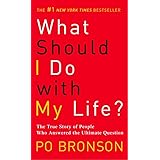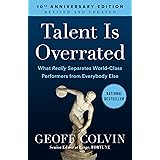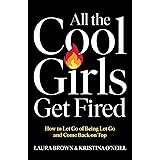The perennial question of whether to switch jobs frequently or cultivate loyalty within a single company is a central dilemma for many professionals. As explored in the video above, there isn’t a simple ‘yes’ or ‘no’ answer. Instead, effective **career planning** hinges on a nuanced approach that prioritizes your individual growth trajectory and long-term aspirations, especially when eyeing **executive roles**.
Making smart career choices means looking beyond immediate opportunities or past efforts. It involves a strategic assessment of where you are, where you want to go, and the most effective path to get there. This article delves deeper into the principles of strategic career management, offering insights into how to make decisions that truly propel your professional journey forward.
Making Strategic Career Decisions
One of the most significant pitfalls in career decision-making is the “sunk cost fallacy.” This occurs when individuals continue a course of action because of the time, effort, or money already invested, rather than assessing the future value of that investment. The video highlights this with the compelling analogy of paying for a bad movie. While you’ve spent money, continuing to watch only wastes more of your valuable time.
Overcoming the Sunk Cost Fallacy
When considering your career path, it’s crucial to acknowledge that past investments, whether in a particular job, company, or project, are already gone. The only thing that truly matters is what you are about to invest in the future. This means evaluating opportunities based on their potential to contribute to your goals, not on how much you’ve already put in.
For instance, if you’ve spent a year in a role that isn’t developing the skills you need, don’t let the “wasted” year keep you from seeking a more beneficial opportunity. Your focus should be on how the next step aligns with your desired **career trajectory** and what new skills or experiences it will provide. It is about making proactive, forward-looking choices.
Designing Your Long-Term Career Path
Achieving significant **career growth**, particularly towards **executive leadership** positions, requires deliberate design, not just reactive responses to job openings. Instead of wondering “should I jump ship?”, it’s more productive to ask: “What skills do I need to reach my goal, and how can I acquire them?”
Identifying Key Skills for Leadership Roles
Imagine your ultimate goal is to become a CEO. To achieve this, you should work backward. What specific skills, knowledge, and experiences are essential for a CEO? This typically includes leadership, domain expertise, marketing, sales, operational experience, and deep customer understanding. By identifying these gaps in your current skillset, you can then strategically seek out roles and opportunities that help you build them.
Companies serve as powerful mediums for skill acquisition. Proactively taking advantage of learning opportunities—both formal and informal—is paramount. This includes participating in cross-functional projects, seeking mentorship, engaging in external training, and continually expanding your knowledge base. Your goal is to fill those skill gaps and accumulate the expertise necessary for your desired future role, making your **career path** an intentional journey.
Navigating Career Growth: Up and Sideways
Many people associate **career advancement** solely with moving “up the ladder” into more senior positions. While vertical growth is certainly a component, true professional development often involves expanding your capabilities in multiple dimensions.
The Value of Multidimensional Professional Development
Growing “up” means progressing through the traditional hierarchy: moving from an analyst to a senior analyst, then to a manager, director, and so forth. This signifies increasing responsibility and often leadership over people. However, growing “sideways” is equally valuable. This involves broadening your knowledge and experience across different areas within your current company or industry.
For example, a marketing professional might expand their understanding from digital marketing to product marketing, or learn about different product lines or solution sets. An engineer might delve into project management or learn a new programming language not directly related to their current tasks. This horizontal expansion enriches your skillset, makes you more versatile, and provides a deeper understanding of the business ecosystem. A great organization fosters this kind of growth, offering continual opportunities that enhance both vertical progression and horizontal knowledge acquisition.
Cultivating a Powerful Professional Network
Building a robust professional network is indispensable for long-term **career growth strategy** and navigating transitions, whether internal or external. The speaker emphasizes that effective networking is not about immediate asks but about building sustained, reciprocal relationships over time.
Building Authentic Relationships for Career Advocacy
There’s a significant difference between asking someone to be a reference and asking them to be an advocate. A reference simply confirms your work history and skills. An advocate actively champions you, opens doors, and speaks on your behalf. To earn advocates, you must invest in relationships without immediate expectation.
The speaker recounts his own experience of nearly two decades in IT consulting, during which he consistently helped others, offered favors, and built strong connections. When he eventually opened his own recruitment firm, he felt no hesitation in reaching out to his extensive network for support, having already established a foundation of goodwill. This long-term perspective—focusing on how you can help others—is the most effective way to build a network that will genuinely support your **professional development** and future opportunities. It’s about planting seeds long before you need to harvest.
Ultimately, whether you stay or embrace **job switching** should be a deliberate decision rooted in your personal **career planning** and aspirations. Continual learning, strategic skill development, and strong relationship-building are cornerstones of a successful **career growth strategy** that will serve you well, regardless of where your journey takes you.









